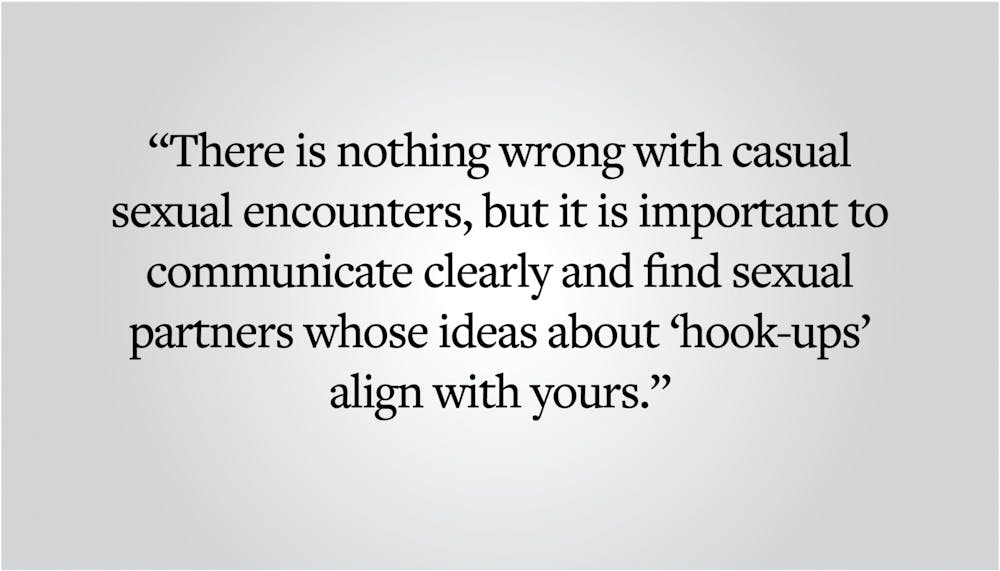Sex can be uncomfortable to talk about, particularly when using the medical terminology that dominates formal education about the subject. But using casual and familiar slang instead can be vague and confusing. One of the most common questions I have been asked as a sex educator is “what is a hook-up?” and whether a given definition of the word is valid or correct. In fact, there is no one definition. I’ve had friends who define it solely as intercourse and others who consider “hooking up” to be kissing or making out. Even online dictionaries and medicalpublications have broad and differing definitions. The term is purposely nebulous — its vagueness makes it easier to share as much or as little about a sexual encounter on one’s own terms. However, using such an indefinite term can become problematic when used within a sexual encounter that requires consent and when the people involved have different definitions and expectations. The unclear nature of hookup culture means it might not be for everyone — but if you do participate in it, try using familiar language that you know only has one definition, and don’t be afraid to ask if you don’t know what someone is asking for or expecting.
Clear communication is particularly important within the “hook-up culture” that dominates college campuses. Hook-up culture encourages casual sexual encounters with strangers, acquaintances and friends that do not necessarily involve emotional intimacy, a romantic connection or commitment. There is an inherent pressure to participate in hook-up culture, even when there is no clear definition of what a hook-up is. This means that participating in hook-up culture means different things to different people. Thus, it can be unclear what people are willing to engage in sexually within the realm of a hook-up.
This is not to say that hook-up culture is always bad, and I genuinely believe that it has some benefits. People are able to figure out what brings them sexual pleasure outside of a romantic context, and this can be particularly helpful when figuring out your sexuality. It also creates an environment in which people are able to talk about sex more openly than before. At times, men are applauded for casual sexual encounters, while women are slut-shamed. Hook-up culture may even work to undo that double standard, though not completely. On the flip side of this, openness about sex may make people feel as though everybody is engaging in hook-up culture, even if that is not true. This could cause increased pressure to participate in order to not feel left out of a seemingly important aspect of the college experience. Hook-up culture can also make people feel as though their romantic feelings should be completely untethered from their sexual ones. People who feel that a strong emotional connection improves their sexual experiences may feel left out from hook-up culture and worse, that they are wrong for connecting the two.
Hook-up culture is right for some, but not all. There is nothing wrong with casual sexual encounters, but it is important to communicate clearly and find sexual partners whose ideas about “hook-ups” align with yours. It is important to communicate your expectations throughout a sexual encounter and to use language that is clear to everyone involved. Using medical language can feel unsexy and take someone out of the moment, so it is not necessary to be formal or professional when asking for consent. But being able to talk to sexual partners about your specific needs, regardless of the level of commitment or emotional connection you share, is critical to a positive sexual encounter. The biggest thing to keep in mind is that even though hook-up culture may always exist, you don’t have to participate. And if you do, you don’t have to approach sex any differently than you would in a relationship — it should still be pleasurable, fun and enjoyable.
If you have questions about sex or relationships that could be discussed in a future column, please submit questions to an anonymous form at https://tinyurl.com/BDHsexcolumn. Anusha Gupta ’25 can be reached at anusha_gupta@brown.edu. Please send responses to this opinion to letters@browndailyherald.com and other op-eds to opinions@browndailyherald.com.





